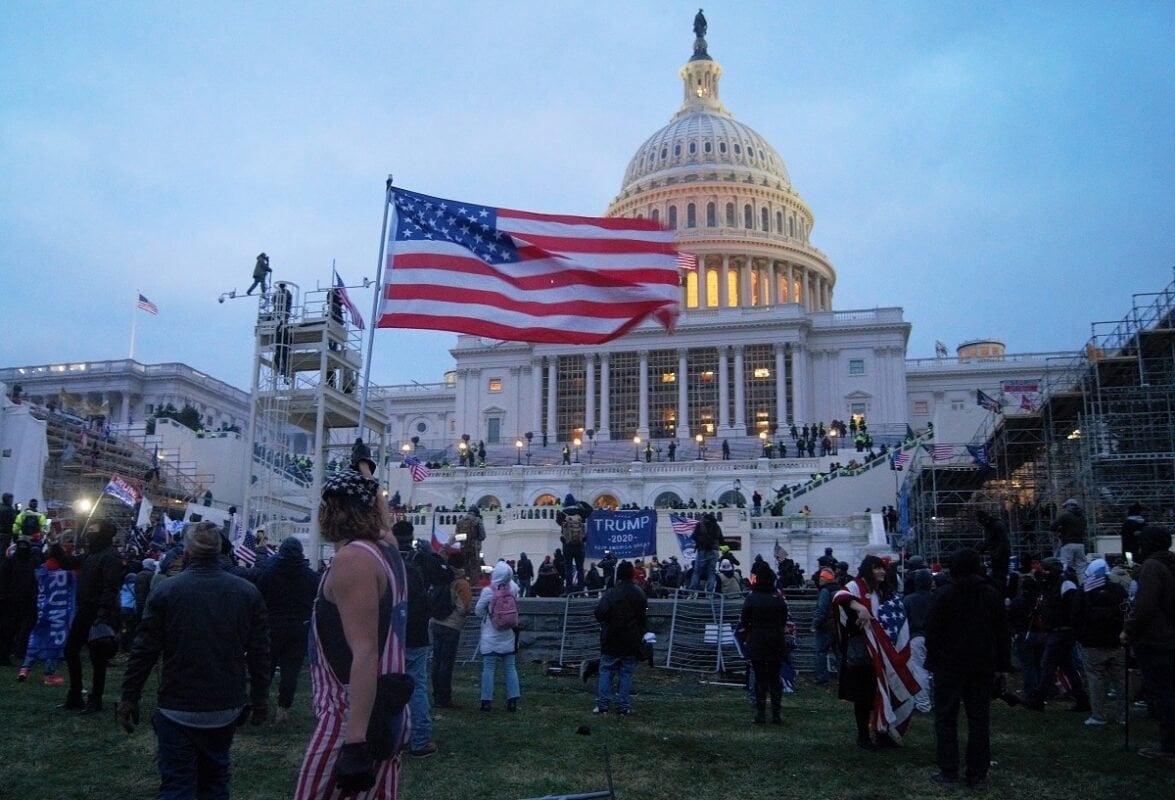Four times I deployed into combat zones over my Army career. Twice more as a retired civilian have I ventured to Iraq and Afghanistan in an attempt to deepen my understanding of the sources of violence that undergirded those wars. Never in my wildest imagination did I believe I would live to see the day when the United States Capitol would be stormed by a wild mob, overpowering the police, disrupting both the House and Senate from performing a critical Constitutional duty.
This assault lays bare that it is time for some hard-core soul searching for both our political leaders as well as regular citizens. One of the most important topics to examine first should be to revisit what patriotism means.
When I joined the Army as a private, I did so out of what I considered a patriotic duty to do my part and serve the country. I swore an oath in August 1985 that I would “support and defend the Constitution of the United States, against all enemies, foreign and domestic.” Pretty unremarkable and straight forward, I believed: the highest authority in our country was the U.S. Constitution, not a person, not a political party.
In contrast, when many say they are patriotic Americans these days, a troubling number peg the meaning of patriotism to allegiance to an individual or a political ideology. It was profoundly ironic, I believe, that when the rioters stormed into the U.S. Capitol Building on Wednesday, many were chanting “U-S-A, U-S-A, U-S-A!”, oblivious to the fact that they were desecrating the very seat of government for that U.S.A., willing to take by force what the election had deprived their favored candidate.

United States Capitol Stormed. Image: Creative Commons.
When we de-couple our patriotism and allegiance away from the Constitution and attach it to an individual or political party, we increase the danger that we unwittingly open a path through which an authoritarian may one day seize power. The assault on the Capitol also has implications for our national security.
Our powerful nuclear and conventional Armed Forces are sufficient to protect us from virtually any would-be aggressor. But that is not the primary source of the power of what it means to be an American. Our greatest source of strength is and always has come from the power of our ideals, even when imperfectly applied.
The greatness of America has derived from the inspiration of our spirit, like that embodied by the Statue of Liberty. Or like the sense of hope delivered by John F. Kennedy in a speech at American University in 1963 when he gave the United States and people around the world hope amidst the potential terrors of nuclear annihilation. America had, and would maintain a powerful national defense capability, Kennedy said, but offered both the United States and the world at large genuine hope when he said the United States “shall also do our part to build a world of peace where the weak are safe and the strong are just.”
Ronald Reagan brought optimism and inspiration to a depressed America and served as a beacon of hope to millions around the world with his vision of America. Yes, we would achieve peace through strength, but our country, he often said, would represent a shining city on a hill “built on rocks stronger than oceans, windswept, God-blessed, and teeming with people of all kinds living in harmony and peace – a city with free ports that hummed with commerce and creativity…and the doors were open to anyone with the will and the heart to get here.”
But perhaps the greatest symbol of American hope was voiced by the man who eventually sacrificed his life in service to the nation was Martin Luther King, Jr. In his timeless “I Have a Dream” speech, King inspired millions – in the process raising the prestige and respect of how America was viewed around the world – when he dreamt of the day “that my four little children will one day live in a nation where they will not be judged by the color of their skin but by the content of their character.”
For decades now America has been shedding, bit by bit, our moral standing and defense of the ideals of the Constitution and increasingly elevating our reliance on our military muscle and elevating the power of personality. This shocking assault on the U.S. Capitol Building is in part a consequence of this drift from our core strengths. As bad as it was, however, it can serve as a useful tool to wake us up so that we realize we are heading in the wrong direction – and motivate us to make necessary changes.
Or we will fail to recognize the source of our problems, continue to blame everyone but ourselves, and risk suffering even darker seasons in the days to come.
Daniel L. Davis is a former Lt. Col. in the U.S. Army who deployed into combat zones four times. He is the author of “The Eleventh Hour in 2020 America.” The views in this article are those of the author alone and do not represent the opinions of any organization. Follow him @DanielLDavis1.

